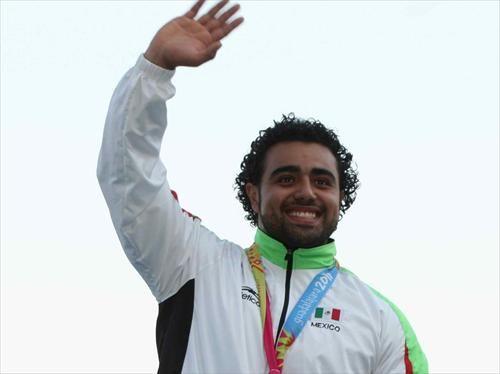
The International Paralympic Committee (IPC) has banned Para athletics athlete Fernando Del Rosario Gonzalez of Mexico for a period of two years for committing an anti-doping rule violation (ADRV), in breach of the IPC Anti-Doping Code (the Code).
The Mexican athlete returned an adverse analytical finding (AAF) for a prohibited substance in a urine sample provided in-competition on 7 April 2024 during the men’s javelin F42 event at the Xalapa 2024 World Para Athletics Grand Prix.
The substance was Carboxy-THC greater than the Decision Limit. The prohibited substance is included on the World Anti-Doping Agency (WADA) 2024 Prohibited List under the class S8 Cannabinoids. It is listed as a Specified Substance and as a Substance of Abuse (as defined in the Code) and is prohibited in-competition only.
The athlete voluntarily accepted a provisional suspension on 3 June 2024 pending a resolution of his case.
The athlete accepted the commission of the ADRV, and the consequences proposed by the IPC. As a result of his violation, the athlete will be ineligible for competition and other sporting activities (other than authorised anti-doping education or rehabilitation programmes) for two years from 3 June 2024 until 2 June 2026.
The case was not dealt with under the Substance of Abuse provisions of the Code because the athlete was unable to establish that his use of Carboxy-THC occurred entirely out-of-competition and for reasons unrelated to sporting performance.
The results obtained by the athlete in the men’s javelin F42 competition at the Xalapa 2024 World Para Athletics Grand Prix are disqualified, with all resulting consequences, including forfeiture of any medals, points and prizes. All other results obtained by the athlete at the Xalapa 2024 World Para Athletics Grand Prix and from the date the sample was collected until the commencement of the provisional suspension are also disqualified, with all resulting consequences, including forfeiture of any medals, points and prizes.
Athletes are reminded that, under the Code, prohibited substances which are identified as potential Substances of Abuse still carry a default period of ineligibility of at least two years when used by athletes in-competition or for reasons related to sporting performance.
Each athlete is strictly liable for the substances found in their sample. An ADRV occurs whenever a prohibited substance (or its metabolites or markers) is found in their sample, whether or not the athlete intentionally or unintentionally used a prohibited substance or was negligent or otherwise at fault.
As a signatory of the World Anti-Doping Code (the WADC), the IPC remains committed to a doping-free sporting environment at all levels. The IPC has established the IPC Anti-Doping Code in compliance with the general principles of the WADC, including the WADC International Standards, expecting that, in the spirit of sport, it will lead the fight against doping in sport for athletes with an impairment.

Be the first to comment